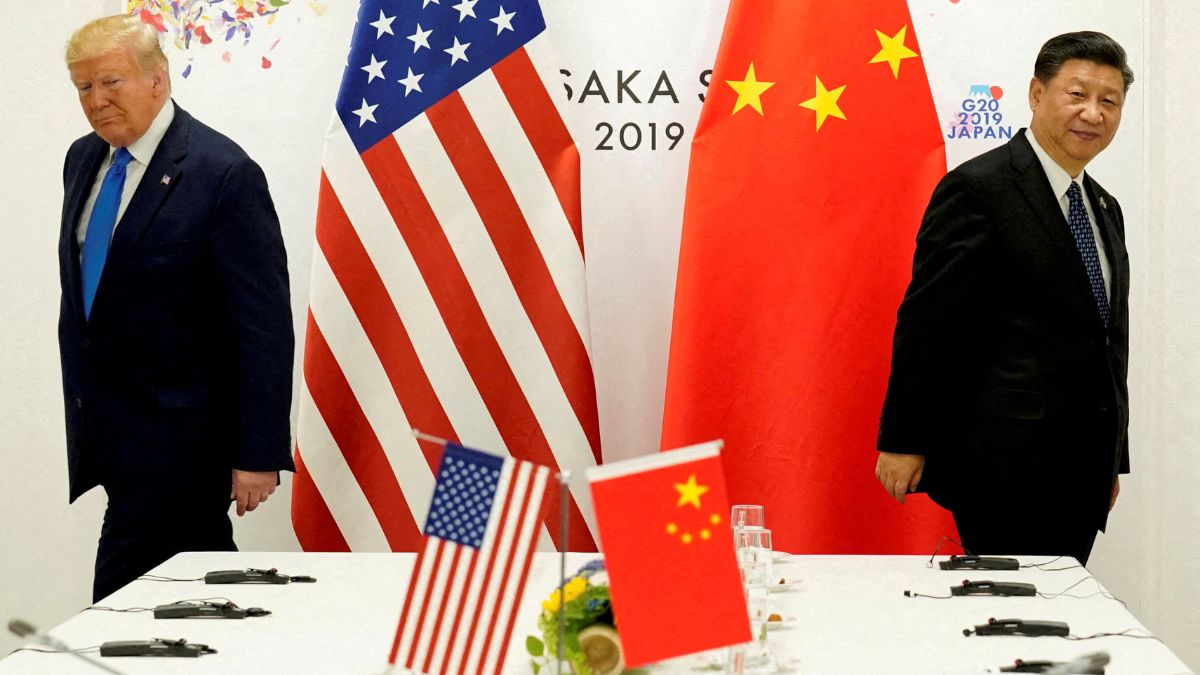- By Supratik Das
- Wed, 09 Apr 2025 06:07 PM (IST)
- Source:JND
US-China Tariff War: In a bitter intensification of the current US-China trade war, China imposed an 84 per cent retaliatory tariff on all American products, more than doubling the earlier 34 per cent rate. The action came one day after former US President Donald Trump imposed a broad 104 per cent tariff on Chinese imports. China's Finance Ministry confirmed that the new tariffs would take effect on April 10, according to Reuters. The news caused ripples in world markets, with US stock index futures falling significantly shortly after.
US-China Trade War Intensifies
Trump's move to introduce a 104 per cent tariff was one of the most aggressive protectionist moves since the trade conflict started. The White House said the new tariff regime would take effect from April 9, designed to counter what Trump referred to as "unfair trade practices" by China. In response to the US action, Beijing vowed to "fight to the end," with the Commerce Ministry stating that it has "firm will and ample means to take necessary countermeasures." The retaliatory increase to 84 per cent is part of a larger plan by China that includes putting twelve US companies on its export control list and listing six US entities on its "unreliable entity" list.
Concurrent with the tariff increase, China reaffirmed its intention to limit exports of heavy and medium rare earth elements as the key materials for high-tech industries like semiconductors, electric cars, and defense production. "The goal of export controls is to ensure national security and meet international obligations," the Chinese Commerce Ministry stated, signaling willingness to use strategic resources in the economic confrontation. Chinese Premier Li Qiang took a defiant tone amid the gathering storm, stating that China has "ample policy tools" to withstand any external shocks. "We are still optimistic about our economic growth prospects in 2025," Qiang said, indicating that Beijing is ready for a protracted standoff.
Markets In A Tizzy: What Lies Ahead?
Global financial markets responded with alacrity to the growing tensions. Experts forecast increased volumes of volatility in commodities and technology sectors, both of which have significant dependence on China- US trade flows. Though the US administration has not made a formal reaction, the experts say Washington is watching the situation with bated breath as companies prepare for supply chain interruptions and climbing the costs of production. With neither party willing to give an inch, the global economy might be heading into another era of uncertainty.
Trade experts caution that drawn-out tariff wars have the potential to affect global supply chains, inflation, and cross-border investment flows when the world is not yet out of post-pandemic economic woes. While both economic titans dig in, the world waits anxiously to observe whether diplomatic backchannels will emerge or if the fight escalates into an all-out trade cold war.
Beijing's Move Is "Unfortunate," Says Bessent
Soon after China declared its 84 per cent retaliatory levies on American products, US Treasury Secretary Scott Bessent referred to Beijing's move as "unfortunate" in a Fox Business Network interview. Bessent cautioned that China "should not attempt to devalue their way out of" the tariff war and called on Beijing to go back to the negotiating table. Rather than retaliatory economic actions, he emphasized, China should aim at punishing those who have been exporting fentanyl precursors to the United States, a thorny issue long raised by former President Donald Trump. Fentanyl has become a chief flashpoint in the US-China relationship, with Trump accusing Beijing of turning a blind eye to the exportation of precursor chemicals. China has, on its part, accused the US of using the fentanyl crisis as an excuse to impose tougher tariffs. The Chinese foreign ministry had previously referred to US pressure on fentanyl as "blackmail." In addition, Bessent said that US allies would want to think about how to "rebalance China" within the global trade system.
China also revised its export control list, listing 12 American entities, and designated 6 others in its "unreliable entity" list. Moreover, Beijing lodged a fresh complaint with the World Trade Organization (WTO) against the US regarding its additional 50 per cent tariff increase on Chinese goods, as affirmed by China's mission to the WTO in a statement.
